Stay in the know
All our latest podcasts delivered right to your inbox.
Relief. Anger. Grief. Getting diagnosed with ADHD can bring up a range of emotions. Host Dr. Roberto Olivardia explains what to look for and how to process big feelings so you can keep moving forward. Get answers to common questions, like how imposter syndrome is connected to ADHD.
How can I prepare emotionally for an ADHD diagnosis? [00:47]
Why is ADHD diagnosis such a relief for some people? [02:04]
Why does ADHD diagnosis often lead to anger and grief? [04:44]
What’s imposter syndrome? And how is it connected to ADHD? [06:01]
Key takeaway, next episode, and credits [07:52]
Related resources
Episode transcript
You’re listening to Season 2 of Understood Explains: ADHD Diagnosis in Adults.
Today’s episode answers the question “How do I get ready emotionally for an ADHD diagnosis?”
My name is Dr. Roberto Olivardia, and I’m a clinical psychologist with more than 20 years of experience evaluating people for things like ADHD. I’m also one of the millions of people who have been diagnosed with ADHD as an adult. I’ll be your host.
My goal here is to answer the most common questions about ADHD diagnosis. Along the way, you’ll learn a lot about ADHD in general.
We’re going to do this quickly — in the next 10 or so minutes. So, let’s get to it.
How can I prepare emotionally for an ADHD diagnosis? [00:47]
So this is a really, really important, and often overlooked, question. When adults get formally diagnosed with ADHD, they’re likely to experience a range of emotions — some good, some not so good. But the more you can be on the lookout for these emotions, the sooner you can start processing them and help yourself start thriving with ADHD.
Now what do I mean by “a range of emotions”? Getting diagnosed with ADHD as an adult can bring up a lot of feelings. But I want to focus on three of the most common emotional responses:
First, there’s relief. “Whew, I finally have an explanation for why things have been so hard!”
Then, there’s grief, which is also really common. “Looking back, I see all the heartache I could have been spared if I’d known sooner about my ADHD.”
And, perhaps not surprisingly, anger is also very common. “I’m so mad at everyone who blamed me for being lazy or careless when I was actually trying my best.”
I’m going to spend some time today talking about each of these emotions. I’m also going to talk about something called imposter syndrome, which is also very common with ADHD — especially in people who got diagnosed later in life.
Why is ADHD diagnosis such a relief for some people? [02:04]
I felt a lot of relief when I got diagnosed at 35. So many things just made more sense when I looked at my life through an ADHD lens.
Likewise, a lot of my patients who were diagnosed with ADHD as adults have told me how relieved they felt to finally have a name for all of their challenges with things like organization and time management.
It can be a huge relief to know the source of your struggles isn’t laziness or lack of intelligence. And this relief often comes with hope or optimism that you’re capable of doing more — if you have the right supports and strategies.
I’m thinking right now about one of my patients who got diagnosed with ADHD in his late 20s, but that was after he’d left college because he couldn’t turn his assignments in on time — and after he’d gotten fired from three jobs for the same reason. Time management and procrastination had been big issues for him for a long time and had left him feeling like he just wasn’t meant to succeed.
But after he got diagnosed with ADHD and started getting treated for it, his worldview shifted. And he began to feel optimistic that he could change things for the better. Together, he and I worked on some ADHD-friendly ways to get started on tasks without waiting until the last minute. And I’m happy to report that he’s now using these strategies and doing well at work. He feels in control for the first time in his life.
Another positive emotion that can come from being diagnosed with ADHD as an adult is that suddenly you realize you’re not alone in your struggles. Suddenly you’re part of an ever-expanding community that includes some very successful members, like:
Comedian Trevor Noah, who hosted The Daily Show
Grammy-winning singer Solange Knowles
Astronaut Scott Kelly, who spent a year in space
And Olympic gold medalists like Michael Phelps and Simone Biles.
Pretty good company to be part of!
I want to share another positive outcome that I’ve experienced personally. Once you start opening up about your ADHD, you’re likely to discover lots of other people you know have ADHD, too. Being open about my ADHD journey has led people from all areas of my life to tell me they also have ADHD — everyone from strangers I meet on airplanes to my longtime colleagues at Harvard Medical School.
Our struggles and strengths may be very different. But in general, it’s a welcoming community with lots of empathy — and often a lot of laughter over what might have been painful experiences at the time, but in hindsight are pretty funny.
Like the time I fell asleep for an hour while taking the SAT in high school. And then I took the test again, and managed to stay awake the whole time, but got pretty much the same score. 😄
Why does ADHD diagnosis often lead to anger and grief? [04:44]
If you’re feeling sad or angry, it might be because you spent a lot of your childhood feeling bad about yourself for disappointing the adults in your life who kept telling you to “just try harder.”
You may be angry about all the symptoms that seem so obvious now but that no one picked up on when you were a kid. You may be sad about all the opportunities you missed out on because people underestimated you.
When my patients are feeling sad or angry about not getting diagnosed as a child, I tell them what we know about ADHD today is very different from what we knew years or decades ago.
It’s totally valid to wonder what life would have been like if you’d gotten the support you needed, but at the same time to focus on the present and keep moving forward.
These can be very strong feelings, and it’s important not to get stuck on them — or to try to ignore them.
One common strategy for working through these kinds of emotions is to funnel them into educating yourself about ADHD. You can connect to a community of adults with ADHD and empower yourself with knowledge.
I often tell my patients that you can’t turn the clock back, but you can view your diagnosis as an invitation to new ways of living your life.
What’s imposter syndrome? And how is it connected to ADHD? [06:01]
If you’ve ever felt like you faked your way into something, like maybe you fooled someone into hiring you for a job, you were probably experiencing something called imposter syndrome.
A big part of imposter syndrome is worrying that, at some point, people are going to figure out you’re a fraud — that you don’t actually deserve to be where you are in life.
These kinds of feelings are common among people like me who have ADHD, because we've often spent years trying to hide our struggles. Maybe we feel like we have to work a lot harder than our peers to get stuff done, and that having to work harder is a bad thing.
For example, if a person with ADHD gets compliments at work for giving a good presentation, they might worry, “If my managers knew I had to pull an all-nighter to put that presentation together, they’d be horrified.”
When I’m working with patients who feel like imposters, I remind them that hard work is worthy of respect — that you can be both intelligent and a hard worker.
I also help them look for ways to be more efficient — to “cut corners” in a responsible way.
A lot of folks are surprised to learn that many people with ADHD struggle with perfectionism: “If I didn’t do something perfectly, then I’m a total failure.” But with practice, you can learn to catch yourself having these kinds of thoughts and reframe your thinking in a more positive, more accurate way.
One more thing about imposter syndrome, and all the other emotions that can come along with an ADHD diagnosis:
I want to mention a great podcast from the Understood team, called ADHD Aha! Each episode profiles a different person and the “aha!” moment where they realized they have ADHD. A good episode to start with is the one where account manager Ange Nolan talks about the “ADHD iceberg.” I’ll include a link in the show notes.
Key takeaway, next episode, and credits [07:52]
OK, listeners, that’s it for Episode 7. If there’s one thing I’m hoping sticks with you, it’s that an ADHD diagnosis can bring up a lot of emotions, and hopefully relief and validation are at the top of the list. But if they’re not, I want you to try to remember that a diagnosis can help you find ways to start moving through life more mindfully and more easily too.
Also, I want to welcome you to the ADHD club. We’re a diverse bunch of people from all walks of life who have a lot in common. We’re here to welcome you with open arms, solid information, empathy, and community.
Thanks for listening. And I hope you’ll join me for Episode 8, which explains what to do if you don’t meet the formal criteria for an ADHD diagnosis or — on the flip side — if you’re worried you might have been misdiagnosed with ADHD.
You’ve been listening to Season 2 of Understood Explains from the Understood Podcast Network. If you want to learn more about the topics we covered today, check out the show notes for this episode. We include more resources, as well as links to anything we’ve mentioned in the episode.
One important note: I don’t prescribe ADHD medication and I don’t have any affiliation with pharmaceutical companies — and neither does Understood. This podcast is intended solely for informational purposes and is not a substitute for a professional diagnosis or for medical advice or treatment. Talk with your health care provider before making any medical decisions.
Understood Explains is produced by Julie Rawe and Cody Nelson, who also edited the show. Briana Berry is our production director. Our theme music was written by Justin D. Wright, who also mixes the show.
For the Understood Podcast Network, Laura Key is our editorial director, Scott Cocchiere is our creative director, and Seth Melnick is our executive producer.
Understood is a nonprofit organization dedicated to helping people who learn and think differently discover their potential and thrive. Learn more at understood.org/mission.
Host
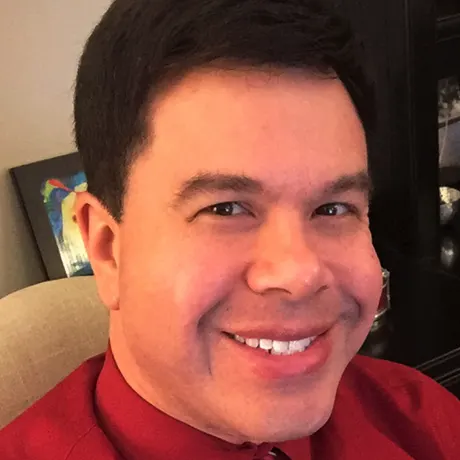
Roberto Olivardia, PhD
is an expert in the treatment of ADHD, obsessive-compulsive disorder, and body dysmorphic disorder. He also focuses on issues facing students with learning disabilities.
Latest episodes

March 22, 2023
Listen to the trailer for Season 2 of “Understood Explains,” which explains ADHD diagnosis in adults — from getting tested to finding support.
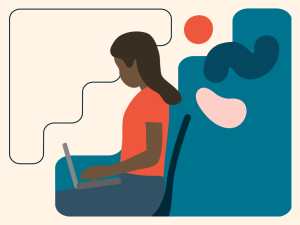
March 29, 2023
Wondering if you have enough ADHD symptoms? If it’s worth the effort to get tested? Host Dr. Roberto Olivardia shares his own adult diagnosis story.

March 29, 2023
Find out which types of health care providers can diagnose ADHD in adults — if it’s worth the wait to see a certain kind of specialist.

March 29, 2023
Find out how doctors test adults for ADHD. What kind of questions do they ask? How long does it take? Know what to expect in a thorough evaluation.
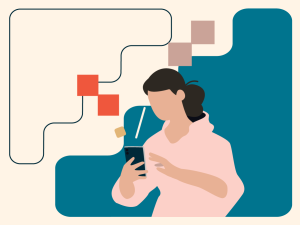
March 29, 2023
The wait time may be shorter, but is online diagnosis accurate? And can it help you get ADHD treatment? Learn the pros and cons of online testing.
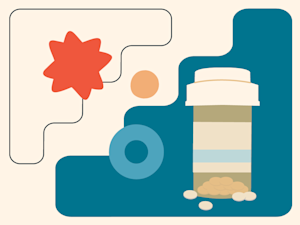
March 29, 2023
How does ADHD medication work? Is it addictive? Get answers to common questions, like how to tell if you’re taking too much or too little.

March 29, 2023
There are many ways to treat ADHD without medication or in addition to medication. Learn about options ranging from behavior therapy to free apps.
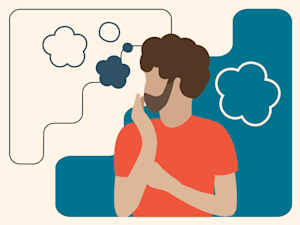
March 29, 2023
Doubting the accuracy of your ADHD diagnosis? Find out how to tell if you got a thorough evaluation and if you might need a second opinion.

March 29, 2023
Listen to personal stories about adult ADHD diagnosis. Find out what led each person to get diagnosed and what they wish they’d known sooner.
